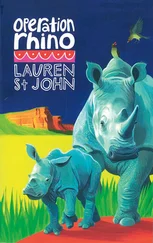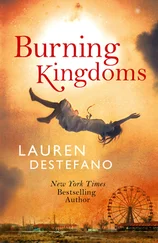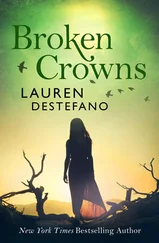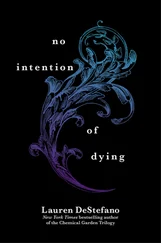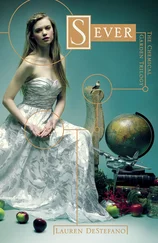
LAUREN DESTEFANO
Book 1 of The Internment Chronicles
FOR
MY FAMILY,
who knows
the importance
of dreaming
beyond the edge
of our world
Out beyond ideas of wrongdoing and rightdoing, there is a field. I’ll meet you there.
Jalāl ad-Din ar-Rūmī
The first humans were especially ungrateful. After the birth of the sun and the moon, they asked for stars. After the crops rose from the ground, they asked for beasts to fill the fields. After some time, the god of the ground, weary of their demands, thought it best to destroy them and begin again with humbler beings. So it goes that the god of the sky thought the first humans too clever to waste, and he agreed to keep them in the sky with the promise that they would never again interfere with the ground.
The History of Internment, Chapter 1
You have all heard the warnings about the edge. We have been told its winds are a song that will hypnotize us, and by the time we awaken from that trance, it will be too late.
-“Intangible Gods,” Daphne Leander, Year Ten
WE LIVE ENCAPSULATED BY THE TRAINS. They go around in a perfect oval at all hours, stopping for thirty-five seconds in each section so the commuters are able to board and depart. Beyond the tracks, after the fence, there’s sky. Engineers crafted a scope so that we can see the ground below us. We can see tall buildings and other sorts of trains—some of which disappear underground or rise onto bridges. We can see patches of cities and towns that appear stitched like one of Lex’s blankets.
We’ve never been able to craft a scope advanced enough to see the people—it isn’t allowed. We’ve been banished to the sky. I’m told they can see Internment, though. I wonder, what must we look like to them? A giant oval of the earth with rocks and roots clinging to the bottom, I suppose. I’ve seen sketches of what Internment looks like as a whole, and it’s as though a giant hand came down and took a piece right out of the ground, and here we are floating in the sky.
When I was a child, I used to think about the day Internment was ripped from the ground and placed in the sky. I used to wonder if the people were frightened, or if they felt fortunate to be saved. I used to imagine that I was a part of Interment’s first generation. I’d close my eyes and feel the ground under my feet going up and up and up.
“Ms. Stockhour,” Instructor Newlan says, “you’re dreaming with your eyes open again. Page forty-six.”
I look at the textbook open before me and realize I haven’t been keeping up with the lesson since page thirty-two.
“I don’t suppose you would care to add to our discussion.” He always paces between the rows of desks as he lectures, and now he’s stopped before me.
“The festival of stars?” I say, but I’m only guessing. I have an incurably wandering mind, a fact that has given Instructor Newlan much cheerful cause to torture me. The chorus of chuckles from my classmates confirms I’m wrong.
“We’ve moved on to geography,” Pen says from beside me. She glances from me to the instructor, curls bouncing around her cheeks and creating a perfect ambiance for the look of contrition on her face; if Instructor Newlan thinks she’s sorry for speaking out of turn, he won’t give her a demerit. He likes her; she’s the only one left fully conscious after his geography lectures—she’d like to work on the maps when she’s older. He gives her a wry glance over his glasses, flips my book to the correct page, and goes on.
“I do realize that it’s December first,” Instructor Newlan says. “I know we’re all excited for the festival of stars to begin, but let us remember that there is plenty of class work to be done in the meantime.”
The festival of stars is a monthlong celebration, and in the excitement and preparations, it’s common for students and adults alike to daydream. But while the rest of Internment daydreams of normal things—gifts and requests to the god of the sky—I dream of things that are dangerous and could have me arrested or killed. I stare at the edge of my desk and imagine it’s the end of my little world.
After the class is over, I wait for Basil before I move for the door. He always insists on catching the same shuttle to the train so he can escort me home. He worries. “Where does your mind go?” he asks me.
“She was thinking about the ground again,” Pen teases, linking her elbow around mine and squeezing against me. “I swear, with all your daydreams about the ground, you could be a novelist.”
I will never be disciplined enough to write a novel, not like my brother, Lex, who says I’m too much of an optimist to have any artistic prowess.
We walk quickly. Pen is trying to avoid Thomas, her betrothed, and the way she keeps glancing behind us, she isn’t even being inconspicuous.
We make it into a shuttle with hardly a second to spare. The shuttles are electric vehicles that are much smaller than train cars and therefore are usually crowded. We stand huddled by the door. Pen deflates with a quiet sigh of relief. Thomas is just leaving the academy as we depart.
Basil grips the overhead handle, and I grab his arm as a jolt knocks me into him. The reason for our betrothals is never explained to us, but I like to think the decision makers knew Basil was going to be taller than me. It can only be an act of good planning, the way my head fits into the hollow between his neck and shoulder.
I keep hold of Pen’s wrist so she doesn’t stumble, but she has no problem keeping her balance. She’s staring out at the clouds full of evening sunlight. They meander alongside Internment, but just when I think they’ll hit us, they evade, slipping under or over our little world like we’re a stone in their waters. Internment is encased by a sphere of wind that prevents the clouds from entering our city, though they seem close enough to touch.
The shuttle stops, pushing strangers into us. We’re lucky to be so close to the door, because everyone rushes to get out at once, hoping to catch the train so they won’t have to wait for the next one.
The train is not very crowded when we board, aside from the seats at the head of the car that are occupied by a group of pregnant women, chattering with one another about the details of their birthing class. Judging by their stomachs, I’d guess they’re carrying a round of January births.
The higher grades let out an hour after most work shifts end, and the younger children have another hour yet of classes. We find an empty row of seats wide enough to fit the three of us, and I deliberately usher Basil in first so that Pen won’t be the one to sit by the window. She has spent enough time staring at the clouds.
“They’ve already started decorating for the festival of stars,” I say, nodding to the silver-colored branches that frame the ceiling of our train car. From the branches hang little metal toys and trinkets that are meant to symbolize human desire—toy trains and books and miniature couples holding hands, the brass silhouette of true love.
The festival of stars overtakes the city in the month of December. It’s a time for giving gifts to our loved ones to show our gratitude for having them in our lives. And on the very last day, we’re allowed to make one big request of the god in the sky. Each request is written on a special piece of parchment that we aren’t meant to share with anyone else. The entire city gathers together, and our pieces of parchment are set on fire and cast into the sky, like hundreds of burning stars. We cling to one another and watch as our greatest desires are carried off and eventually extinguished, to be answered or denied.
Читать дальше
Конец ознакомительного отрывка
Купить книгу



